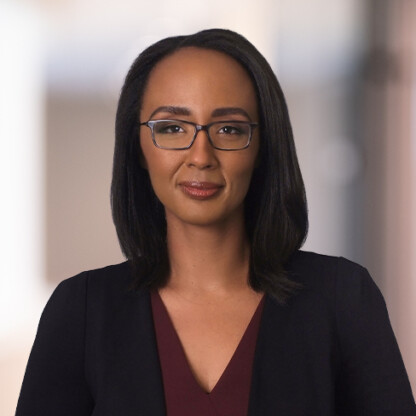Foley Juneteenth Program: Exploring the Hidden History to Further Our Mutual Understanding

In celebration of Juneteenth, Foley & Lardner welcomed Dr. Deirdre Cooper Owens, author and historian, for a firmwide virtual program on June 18. Cooper Owens is known for her writings on slavery and the history of reproductive medicine. Called one of the country’s most “acclaimed experts in U.S. history” by Time magazine, Cooper Owens comes from a long line of storytellers and preachers.
The program began by connecting attendees to the contemporary moment of Juneteenth and the ways it has been represented — and misrepresented — since Juneteenth National Independence Day became federal law on June 17, 2021. Often the colors of pan-African flag (red, black, and green) are used to depict Juneteenth rather than the actual Juneteenth flag created in the 1990s, Cooper Owens explained, and we have seen commercialization of this day when people had literally been freed from slavery.
“Juneteenth should be a day centered around the people who are often left out of history books,” she said, recounting the narrative of domestic slave Katie Darling. Cooper Owens explained that Darling, like many enslaved people in 1865, learned that the Emancipation Proclamation ending slavery had been issued two years earlier. But their owners had refused to emancipate the folk they owned.
June 19, 1965, was the day when soldiers came to Galveston, Texas, to carry out the order to free all slaves. “They were now considered human beings and no longer considered chattel,” Cooper Owens said. But freedom is really complicated, and there were many people like Katie Darling who sat at the precipice between slavery and emancipation knowing there are laws that say she can be free but having nowhere else to go.
For those who were able to leave, Cooper Owens explained, they set about creating spaces where Black folks could live as free people. They created churches where they could legally marry, schools to learn to read and write, and parks for communal celebrations. She closed out her program by highlighting key takeaways to better understand the celebration of Juneteenth:
- Community building and collaboration was necessary for growth.
- The newly emancipated people and their descendants lifted their ancestors, and they integrated those lessons into their institution building.
- Using love as a political technology that refused democratic principles.
“We do these things in remembrance of those whose names are not recorded despite the sacrifices they made in the push for what true democratic principles mean.”
Click here to learn more about Diversity, Equity & Inclusion at Foley, and to explore how discussions like these contribute to a more inclusive workplace and society.
